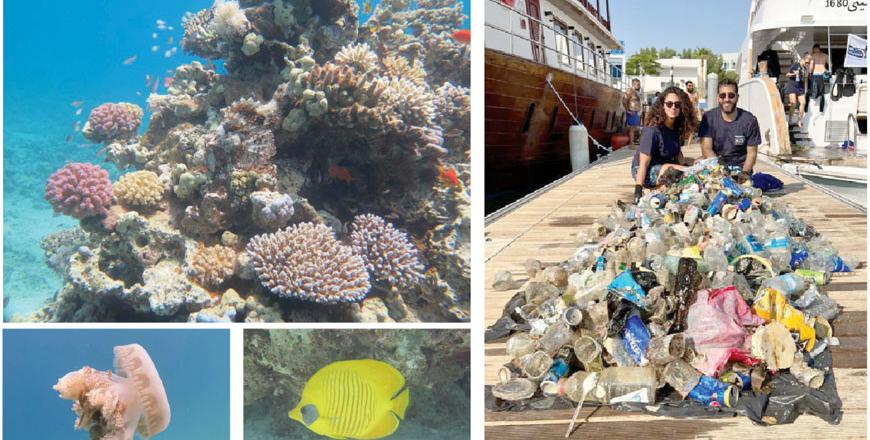You are here
Plastic menace chokes Aqaba marine life — report
By Maram Kayed - Sep 24,2019 - Last updated at Sep 24,2019

Participants are seen collecting waste during the Royal Marine Conservation Society’s latest cleaning campaign targetting Aqaba's portion of the Red Sea (Photo courtesy of JREDS Facebook page)
AMMAN — Around 60 per cent of waste dumped in Aqaba's ports and beaches is plastic, according to a report from the Royal Marine Conservation Society of Jordan (JREDS).
In its latest cleaning campaign that targets Aqaba's portion of the Red Sea — mainly the Aqaba port and a few public beaches — the marine society collected one-and-a-half tonnes of waste. The remaining 40 per cent, according to the report, were made up of glass, cans, fishing rope and wood.
The percentage of plastic has been "relatively consistent" during the latest cleaning campaigns, and the report suggested that "plastic is the dominant type of waste being dumped".
"This is very dangerous because we know that plastic is the hardest and most dangerous substance to be dumped not only into water but also on land," said Faisal Shweikat, a senior official at the Aqaba port.
"Plastic harms the marine life in almost irreversible ways. The alarming fact is that in every cleaning campaign more than 60 per cent of the waste found on our side of the Red Sea is plastic," he added.
"This is made worse when you think about the rare marine life that Aqaba contains. In the entire east of the globe, Aqaba is the only place where certain types of corals live," said Salma Khaldoun, a marine biologist in Aqaba.
She added that "cigarette butts, which are also found extensively in the water and on the beach, are very harmful to the corals. The increased presence of such harmful materials, including plastic, has led environmentalists to believe that the coral may soon disappear".
Related Articles
One to two square kilometres of Aqaba’s public beaches are lost every year to investment projects, according to marine conservationists.
Aqaba reefs face substantial dangers of man-made variety, mainly overfishing, litteringAround 44% of coral species recorded in Red Sea only
NAIROBI — The UN on Monday launched a global effort to forge a landmark treaty curbing plastic pollution , an "epidemic" with escalating cos

















